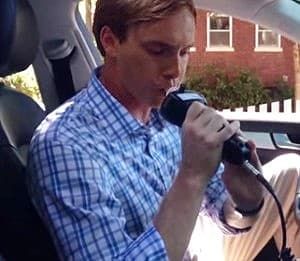 A trend that has been sweeping legislatures across the country has hit North Carolina. Currently 29 states mandate ignition interlocks for all DWI offenses, and a group of lawmakers want North Carolina to be number 30.
A trend that has been sweeping legislatures across the country has hit North Carolina. Currently 29 states mandate ignition interlocks for all DWI offenses, and a group of lawmakers want North Carolina to be number 30.
An ignition interlock, or car breathalyzer, prevents a vehicle from starting if the driver has been drinking.
States which have mandated the devices for all offenders, including first offenders, have seen a downturn in alcohol-related road deaths. An all-offender laws is a logical move that other are debating as well.
Currently the state requires the devices for DWI convictions of people arrested with a blood alcohol concentration (BAC) of .15. The new law would require them for anyone with a BAC of .08 or more.
Something Different for NC: Different BAC Device Limits
One interesting departure in the North Carolina bill is the way in which the legislators would like the interlocks to operate. Usually, an ignition interlock will trigger a warning if the tester’s BAC is below a pre-set level – usually .02 or .025.
The current bill would move the low limit to .04 for first offenders. In other words, they could possibly have one drink and then drive right after or soon after.
For repeat offenders and underage offenders, the level would be zero. Any alcohol at all in one’s system would prevent the vehicle from starting.
It’ s an interesting compromise, one that allows for light drinking for first offenders who wish to drive, and then allows for none at all for repeat offenders. This provision would get around the objections that some have that ignition interlocks are too harsh on first offenders.
We don’t agree with that, and we’d be uneasy with a convicted DWI driver who then was permitted to drive under any influence. A .04 BAC level is not that low – there is some impairment, though of course that would vary depending on the person’s age, size, sex, and other factors.
Is this compromise what’s needed to finally get an all-offender ignition interlock law off the ground in North Carolina? Perhaps. In any case, it shows that North Carolina is on board with ignition interlocks as a measure for combating drunk driving. Maybe they’ll tweak the numbers later and make the law a bit safer, after the program proves itself as a life saver.
